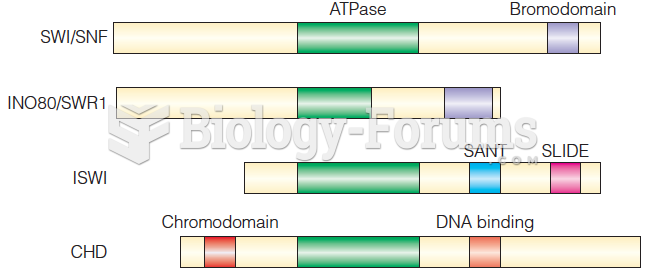|
|
|
A strange skin disease referred to as Morgellons has occurred in the southern United States and in California. Symptoms include slowly healing sores, joint pain, persistent fatigue, and a sensation of things crawling through the skin. Another symptom is strange-looking, threadlike extrusions coming out of the skin.
In the United States, there is a birth every 8 seconds, according to the U.S. Census Bureau's Population Clock.
In 2012, nearly 24 milliion Americans, aged 12 and older, had abused an illicit drug, according to the National Institute on Drug Abuse (NIDA).
The heart is located in the center of the chest, with part of it tipped slightly so that it taps against the left side of the chest.
There are over 65,000 known species of protozoa. About 10,000 species are parasitic.







